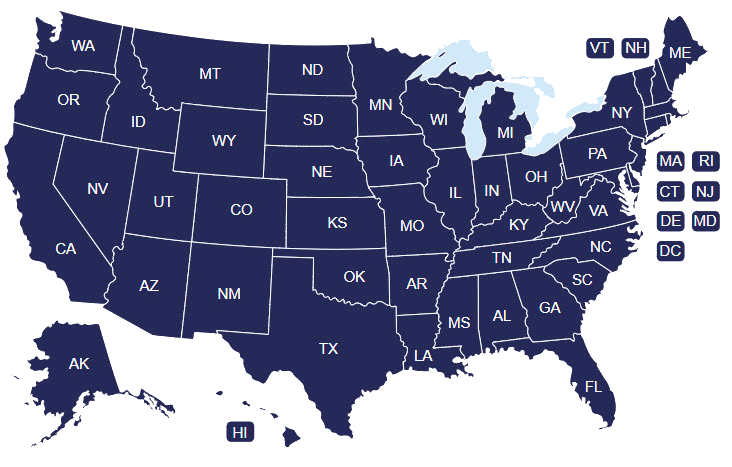Understanding International Business Education
International business education provides the skills necessary to navigate global markets. This field covers essential areas like economics, cross-cultural management, and international regulations.
What is an International Business Degree?
An international business degree prepares you to work across different cultures and markets. It equips you with knowledge of trade regulations, global market trends, and business ethics.
Degree programs vary, offering options from an associate degree to a master’s degree or even a doctorate in international business.
Associate in International Business
An associate degree in international business typically covers the basics of business disciplines such as accounting, management, and marketing, with a focus on a global perspective. Students learn introductory concepts in economics and international trade, along with fundamental cross-cultural communication skills. This degree often prepares graduates for roles in support positions within government agencies or multinational corporations, aiding in administrative tasks and international market analysis.
Bachelor's in International Business
A bachelor’s degree in international business expands on foundational knowledge gained during associate studies and dives deeper into specialized topics such as international finance, supply chain management, and cross-border marketing strategies. Statistical analysis and globalization impact form core parts of the curriculum.
Students often gain insights into multinational corporate strategies, including how to manage business operations on an international scale. They are also equipped with knowledge of international trade law and global business law. Graduates of this program may find themselves in roles such as international marketing analysts, supply chain coordinators, or entry-level human resources managers.

Master’s in International Business
A master’s degree in international business focuses on advanced concepts and strategic management skills needed for leadership in global markets. This program integrates innovation and strategic thinking with business management and corporate investment banking. It emphasizes cultural competence and advanced cross-cultural communication to develop leader’s adept at navigating diverse international environments. Another option for an advanced degree that students should consider is an MBA in Global Management.
Admission Requirements for International Business Programs
Most programs have specific admission requirements you need to meet. For undergraduate degrees, a high school diploma or GED, along with official transcripts, are typically required.
Some schools also ask for a minimum GPA and SAT scores. You may need to submit letters of recommendation and a personal essay.
Graduate programs have more stringent criteria. You’ll likely need a bachelor’s degree in business, business administration or a related field and might have to attend an admissions interview.
Certain courses, especially those at the doctorate level, may request previous work experience to prove your aptitude for studying international business.
Core Coursework in International Business
In an international business program, you can expect a well-rounded curriculum.
Core courses often include subjects like economics, statistics, and cross-cultural management.
Economics courses focus on the global market and trade theories. Statistics helps you understand data-driven decision-making, vital for business strategies.
Additionally, you'll study international laws and trade regulations, which are crucial for compliance and forming partnerships.
Communication and negotiation courses prepare you for interacting with diverse cultures and markets. These courses aim to provide a comprehensive understanding of the challenges and opportunities in the realm of international business.
Career Opportunities in International Business
Pursuing a career in international business can open doors to diverse opportunities across various sectors. From multinational corporations to government agencies, your expertise can lead to roles that require strategic thinking and a global perspective.
In-demand International Business Roles
Key roles in this field include positions such as international trade specialist, market research analyst, and corporate investment banker.
Multinational corporations often seek global marketing managers to strategize and implement marketing across borders. Government agencies and nonprofit organizations may also require international economists or policy analysts to drive their international agendas.
Working as a supply chain manager or operations manager can offer a chance to optimize and manage global logistics.
The Routes to an International Business Career
To start an international business career, a degree in business with a focus on international studies is highly recommended.
Admissions requirements typically include coursework in foreign languages, economics, and financial management. Experience with multinational firms or government entities can further enhance your profile.
Internships are a valuable way to gain hands-on experience and network within the industry. Many choose to pursue postgraduate qualifications such as an MBA with an international focus for career advancement.
Professional Certifications and Advancements
Certifications can significantly boost your qualifications in international business careers.
Consider obtaining professional certifications like the Certified Global Business Professional (CGBP). Membership in professional organizations, such as the International Business Association, provides networking opportunities and access to industry trends.
Advancement in roles such as senior risk management consultant or global operations manager often requires ongoing education and skill enhancement. Engaging in workshops and seminars on international policies and trade regulations can further elevate your career trajectory.
Resources and Development in International Business
Expanding your knowledge through various resources and enhancing your professional business network are crucial components of succeeding in international business. This segment focuses on avenues for networking and professional growth, as well as educational resources for continuous learning in business.
Networking and Professional Organizations
Engaging with professional organizations can significantly enhance your career in international business.
These organizations offer networking opportunities, industry events, and conferences.
The International Association of Business Communicators is one such entity. Joining organizations like these allows you to connect with peers in marketing, finance, and accounting.
Consider obtaining professional certifications to boost your credentials. Certifications in areas like finance or marketing can provide a competitive edge. Networking within these organizations often opens doors to job opportunities and collaborations that aren’t publicly advertised.
Educational Resources for Continual Learning
Continual learning is key to staying competitive in international business.
Numerous online platforms and universities offer specialized courses in areas such as strategic management, international finance, and global marketing. These courses often provide flexible learning schedules, allowing you to balance work and study.
Many institutions offer free resources, including webinars and white papers on the latest business trends. Subscribing to newsletters and industry journals can also keep your skills current and relevant.
Engaging in these educational resources helps you stay informed of industry changes, helping you adapt to the evolving business landscape effectively.
Understanding Global Markets and Trade
Navigating the complexities of global markets and trade involves understanding international trade dynamics, interpreting various trade regulations, and analyzing international market trends. By equipping yourself with this knowledge, you can make informed decisions that impact your role as a trade specialist.
The Dynamics of International Trade
Understanding the dynamics of international trade requires familiarity with how goods, services, and capital flow across borders.
Trade facilitates economic growth by providing access to a broader range of products and enhancing resource allocation.
Supply and demand in foreign markets guide these economic activities. To thrive in this field, comprehend the influence of international trade on global economies. Participate in regular market research to track fluctuations in demand and monitor competitive landscapes.
Trade Regulations and Global Market Trends
Trade regulations are pivotal in shaping global market trends. These rules can significantly affect your business strategy.
Policies surrounding tariffs, quotas, and embargoes determine product pricing and availability. Economic integration via reduced trade barriers has opened new avenues for growth.
Stay informed about current regulations to anticipate shifts in trade. This awareness lets you capitalize on favorable trends.
Understanding how political systems influence trade regulations ensures that strategies align with legal frameworks in international markets.
Analyzing International Markets and Economies
Analyzing international markets involves examining various economic factors that influence trade patterns.
Market trends, consumer behaviors, and financial policies are crucial metrics that guide decision-making. By leveraging data analytics tools, conduct thorough market research to gauge potential opportunities.
Understanding market dynamics helps mitigate risks, allowing you to adapt to changes promptly. Evaluate market entry strategies considering geopolitical landscapes and economic stability of target regions. This approach aids in framing policies that address challenges and leverage potential benefits conducive to expanding your global presence.
Global Marketing Strategies
Understanding the intricacies of marketing across diverse cultures and executing effective global campaigns is essential for success. This section explores the nuances of cross-cultural communication, and the strategies needed for developing and executing impactful global marketing campaigns.
Cross-Cultural Communication and International Marketing
Effective cross-cultural communication is crucial in international marketing. Recognizing cultural nuances allows you to tailor your message for different markets.
Understanding local customs, traditions, and consumer behaviors can significantly influence your marketing success.
Clear communication skills are vital for ensuring your message resonates with the target audience in each region.
Collaborating with local teams often enhances your ability to adapt marketing strategies. Different cultural contexts may require unique approaches to messaging, packaging, and marketing channels.
Roles like public relations manager and marketing manager play key parts in managing cross-cultural interactions. These professionals must be adept at navigating cultural differences to maintain consistency in brand messaging while tailoring it to local preferences. Leveraging cultural insights gives a competitive edge, enabling better market penetration and customer engagement.
Developing and Executing Global Marketing Campaigns
Successful global marketing campaigns require thorough market research to identify promising markets and understand local consumer behavior. You must analyze economic indicators and industry reports to refine your approach.
A marketing manager should focus on aligning product offerings with local demands, which may involve altering products, packaging, or messaging. Engaging local resources, including people and platforms, can enhance campaign effectiveness.
Collaboration between product managers and marketing teams is key in implementing campaigns that suit diverse markets. Flexibility in strategy development is crucial, ensuring campaigns are adaptable and effective. With the right execution, your global marketing efforts can achieve substantial growth and brand recognition worldwide.
Finance and Economics in International Business
Understanding finance and economics within international business involves analyzing how global markets operate and influence corporate investments. Financial institutions and economists play critical roles in shaping global economic policies.
International Finance and Corporate Investment
In the realm of international finance, your understanding begins with the movement of capital across borders.
As a corporate investment banker, you engage in activities that involve advising clients on foreign investments and managing mergers and acquisitions. The foreign exchange market is one of your key areas, as it greatly impacts investment decisions. You'll want to pay attention to exchange rate fluctuations, which can significantly influence business profitability.
International financial markets are crucial in global business. By mastering business and economic statistics, you can interpret market trends and risks. This expertise enables you to guide corporate strategies effectively.
Key roles you might explore include being a corporate investment banker or a foreign exchange trader, both of which require skillful negotiation and strategic planning.
Role of Economists in Global Financial Institutions
Economists are central figures in shaping policy within global financial institutions such as the International Monetary Fund (IMF) and the World Bank.
Your work as an economic researcher involves analyzing economic data to forecast trends and inform policy. This role requires a deep understanding of economic indicators and their impact on international markets.
As an economist in a global setting, you're expected to provide insights that help countries stabilize their economies. For instance, developing trade policies or solutions for economic crises are part of your responsibilities.
Working closely with international banks and financial institutions sharpens your skills in interpreting economic developments and predicting financial stability. Careers like being a stockbroker or financial analyst may align with your skills in assessing economic growth and its effects on business.
Managing Global Operations and Supply Chains
The effective management of global supply chains and operations is crucial for any business aiming to compete internationally. Your role as a supply chain manager or operations manager involves strategic planning and overcoming diverse challenges in logistics and operations across borders.
Strategies in Global Supply Chain Management
Developing robust strategies is essential for managing a global supply chain effectively.
Begin by integrating advanced technologies like blockchain and the Internet of Things (IoT) to enhance supply chain transparency and efficiency. These tools help in tracking and securing transactions.
Focus on building strong relationships with suppliers and trade partners. Establishing trust facilitates smoother international trade operations and reduces disruptions in the supply chain.
You should also consider diversifying your supplier base to minimize risks associated with geopolitical tensions or natural disasters.
Implement sustainable practices to satisfy stakeholders' growing environmental concerns.
Challenges in Worldwide Logistics and Operations
Managing logistics on a global scale presents significant challenges.
Coordinating international transportation involves navigating complex regulations and trade barriers. As a global operations manager, you must stay informed about regulatory changes that impact on your operations.
Fluctuating fuel prices and labor strikes can also impact logistics costs and timelines. Mitigate such risks by planning contingency routes and having flexible contracts with logistics providers.
Additionally, cultural nuances can influence negotiations and partnerships; understanding these can be crucial to your operations' success.
Legal and Ethical Considerations in International Business
In international business, understanding the intricate web of legal systems and maintaining ethical practices is crucial. Whether you're navigating trade regulations or ensuring moral conduct, each aspect influences your global operations.
Navigating Business Law Across Borders
International business requires careful attention to varying legal frameworks.
You must understand diverse aspects such as trade regulations, arbitration agreements, and compliance standards.
Trade agreements like free trade deals can affect your business's ability to move goods and services efficiently.
Legal consultants can also play a key role in helping you navigate these complex regulatory landscapes, ensuring adherence to the laws of multiple jurisdictions. This compliance helps prevent potential legal issues and enhances your business credibility globally.
Furthermore, cultural awareness is vital in avoiding legal misunderstandings. Different countries may have unique approaches to matters like contracts and intellectual property.
By consulting with a management consultant familiar with local legal norms, you can better strategize your market entry or expansion, aligning your operations with regional business norms.
Ethical Practices in International Business
Maintaining ethical standards in international business is as important as understanding local laws.
Practices such as avoiding bribery and corruption are not just moral imperatives but also often legal requirements.
Ethical guidelines often come from international bodies that oversee corporate behavior globally.
These guidelines stress the essence of corporate citizenship and shared value, which aim at balancing business objectives with societal needs.
Engaging in ethically sound consulting helps businesses incorporate these principles into their operations.
Additionally, cultural awareness enhances ethical practices by understanding the values and expectations in different markets, enabling you to operate respectfully and responsibly.
In this way, ethics not only protect your reputation but also strengthen your business's long-term sustainability.
State-By-State International Business Rankings
Select a State to Search Colleges & Universities

- Select a State
-
- Alabama
- Alaska
- Arizona
- Arkansas
- California
- Colorado
- Connecticut
- Delaware
- Florida
- Georgia
- Hawaii
- Idaho
- Illinois
- Indiana
- Iowa
- Kansas
- Kentucky
- Louisiana
- Maine
- Maryland
- Massachusetts
- Michigan
- Minnesota
- Mississippi
- Missouri
- Montana
- Nebraska
- Nevada
- New Hampshire
- New Jersey
- New Mexico
- New York
- North Carolina
- North Dakota
- Ohio
- Oklahoma
- Oregon
- Pennsylvania
- Rhode Island
- South Carolina
- South Dakota
- Tennessee
- Texas
- Utah
- Vermont
- Virginia
- Washington
- West Virginia
- Wisconsin
- Wyoming


